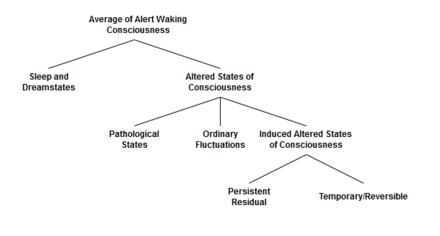You may have already wondered what altered states of consciousness are and are curious about what happens, for example, when someone goes into a coma or with patients in a vegetative state, in these situations, many questions go through our minds. Is there work to be done with them? If so, under what conditions is this work done and what are your expectations?We are talking about complicated situations where impotence and uncertainty can be major obstacles.
The person may go into a coma for several reasons, the coma can have a traumatic origin, such as those caused by traffic accidents, or non-traumatic, such as a stroke (stroke, brain hemorrhage?) Or some tumor injuries.
- Coma is a condition in which consciousness is reduced with partial or total loss of response to external stimuli and the patient becomes unable to properly interact with these stimuli.
The pain that made me take my hand off an object that hurt me, now I’m not sorry, I no longer feel the burn, I don’t react to my mother’s voice because I don’t recognize her.
They’re all examples we can think about. That is, there is a lack of response to exposure to external stimuli that, under normal conditions, would induce a response; However, there are different degrees in these altered states of consciousness, these degrees are measured by a scale called the Glasgow scale.
This scale takes into account the verbal, motor, eye-opening response to calls and pain, simple tests are performed with the patient to see how he reacts to certain external stimuli, so he evaluates the response capacity of the individual.
Once these exercises are complete, the scores are reviewed and we will have an index, this clue indicates how affected the patient was, if you do not respond to any stimulus you will get a lower score, if you respond to all, it means that their level of consciousness has not been affected.
The professional who made the assessment will have a mental map of the neurological situation of his patient and can act accordingly, if the patient has a minimal reaction it is necessary to hold on to it and create all possible situations to get their attention.
People have five senses and some are used more than others: sight, touch, smell, hearing and taste. We know many cases of blind people who end up making extraordinary use of other senses, masterfully developed the other senses to compensate. this lack.
In the case of altered states of consciousness, it is necessary to evaluate which senses are preserved and work with them, the sensory areas of our brain are activated when we receive external stimuli, so we must activate those areas.
To activate these areas, we need to stimulate the patient through the preserved senses, in addition, if we use stimuli that are familiar to the patient and connect them with emotional memory, we obtain something very important and fundamental, and he can react more easily. .
The reaction can be almost imperceptible, so professionals working with these patients should be patient and always very attentive to any changes that occur in their body as a result of stimulation, which can be a slight movement of the index finger or even a subtle change of eyes. It’s all right. Any change, absolutely any change in your body will bring us information.
Since the specialist has proven that stimulating a certain sense evokes a response, your mission is to emphasize it, we do not want it to get used to the same stimulus, we want it to always respond to that stimulus when the body gets used to a certain stimulus can attenuate the intensity of the reaction, what we want is that the reaction is more intense, a sign that the brain is activated.
You may have heard of people who had relatives in this state and went to the hospital, sat next to them and sang their favorite song, or brought their favorite cake with that signature smell, or that stuffed animal they had since they were kids and loved to appreciate it.
Therefore, it is essential to use these elements before we know what would make the patient react more meaningfully and, if we can get a differentiated answer, let us go after it, just as the lion pursues its prey. The professional should look for several options to help his patient generate answers, the patient himself will show us his pace and his time.
The work done with these people is complicated because the changes that occur overnight are very small, but in the long run it is very rewarding, the recovery that we can achieve with stimulation is very significant, thanks to the plasticity of our That is why, we want to send all the breath of the world to the people who are recovering , both for them and for their families, because it is through insistence that the results come to an end.
It is very important to believe that our effort and insistence help us recover from disabilities caused by an accident or serious illness.

